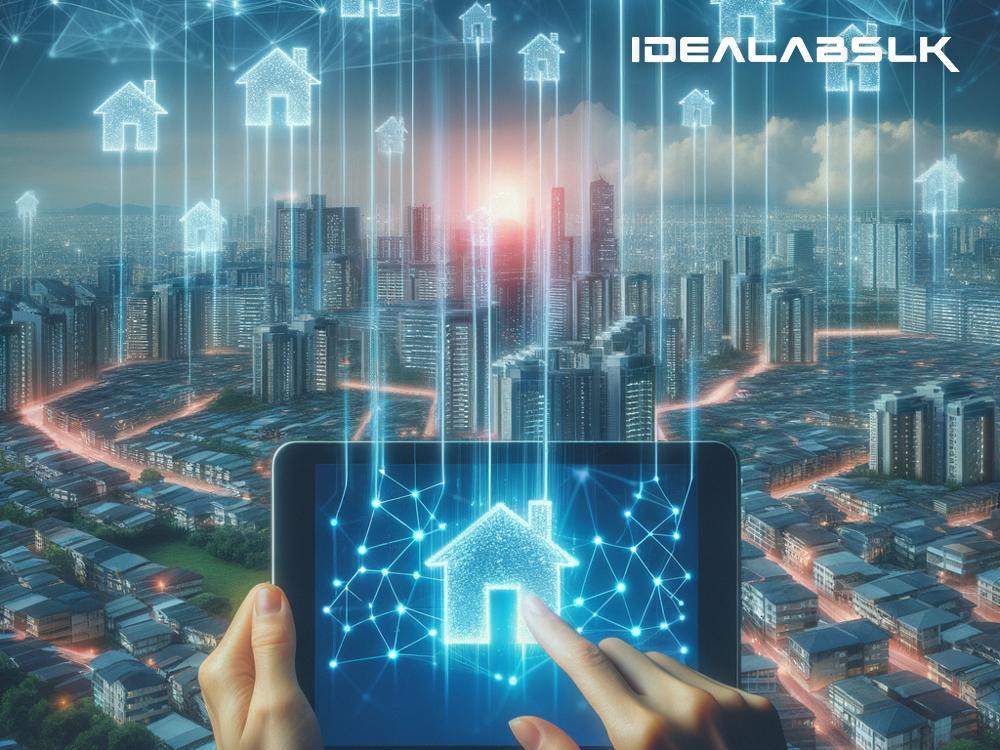Unlocking the Future of Real Estate: How Blockchain Is Changing Property Title Transfers
In the world of buying and selling property, there's one thing both parties always need to be sure of: the property title is clean and the transfer is secure. For decades, this process has been bogged down with paperwork, middlemen, and, unfortunately, a fair amount of risk including fraud. But imagine a world where transferring property titles is as easy and secure as sending an email. This is where blockchain technology, the same tech that powers cryptocurrencies like Bitcoin, is starting to play a fascinating role in revolutionizing real estate.
What Is Blockchain, Anyway?
Before diving into the specifics, let’s demystify blockchain. In simple terms, blockchain is a secure, distributed ledger or database that maintains a continuously expanding list of records, called blocks, which are linked and secured using cryptography. Think of it as a diary that is maintained not by one person but collectively by a whole network of people, each keeping the other in check, ensuring no false entries are made. Once information goes into the blockchain, altering it is practically impossible, making the system secure by design.
The Current Hassles of Property Title Transfers
Traditionally, when you purchase a property, transferring the title from the seller to the buyer involves a whirlwind of paperwork, multiple verifications, a good chunk of time, and sadly, a significant amount of fees. The process is cumbersome, slow, and sometimes, insecure. Fraudsters can forge documents or impersonate owners, leading to legal battles that can last years. This process, in its current state, is ripe for improvement.
Blockchain to the Rescue
Now, inject blockchain into the real estate scene. Using blockchain to handle property title transfers can significantly streamline and secure the entire process. Here’s how:
1. Decentralization:
With blockchain, the title records are not stored in a central database but distributed across a network, making it exceedingly difficult for hackers to corrupt. Each transaction (in this case, each property transfer) is recorded on this network, time-stamped, and linked to the previous one, creating an unbreakable chain of ownership history.
2. Transparency and Security:
Every transaction on the blockchain is visible to all participants and must be agreed upon by the network, making fraud nearly impossible. You can’t just claim ownership of a property; the entire history of transactions is right there, verified and immutable.
3. Speed and Efficiency:
With blockchain, the days of waiting weeks for the paperwork to process are gone. Transactions can be completed in a fraction of the time, with much less paperwork and fewer intermediaries. This not only speeds up the process but also reduces the cost of transactions.
4. Smart Contracts:
A key feature of blockchain is its ability to execute smart contracts automatically. These are contracts that self-execute when certain conditions are met. For example, when the buyer transfers the purchase amount, the property title would automatically transfer to the buyer's name without the need for additional paperwork or third-party intervention.
Real-World Application and Challenges
Several startups and established companies are already experimenting with blockchain for real estate. However, widespread adoption faces hurdles. The biggest challenge is regulatory acceptance. Property laws vary immensely across jurisdictions, and integrating blockchain into this decades-old legal framework is no small feat. Moreover, there’s also the task of digitizing existing property records and establishing a standardized system that can be used universally.
Despite these challenges, the potential benefits of applying blockchain technology to real estate transactions are too significant to ignore. The security, transparency, and efficiency it brings could not only save billions in costs but also reduce fraud, making property transactions safer and more trustworthy for everyone involved.
The Future is Blockchain
Blockchain in real estate is still in its early stages, but it's clear that it has the potential to transform the industry. As technology advances and regulatory frameworks adapt, we may soon see a world where transferring a property title is as secure and straightforward as sending an instant message.
The journey of integrating blockchain into real estate is just beginning, and it promises to make the process of buying and selling property more transparent, efficient, and secure for everyone. The future of real estate transactions is here, and it is built on blockchain.

